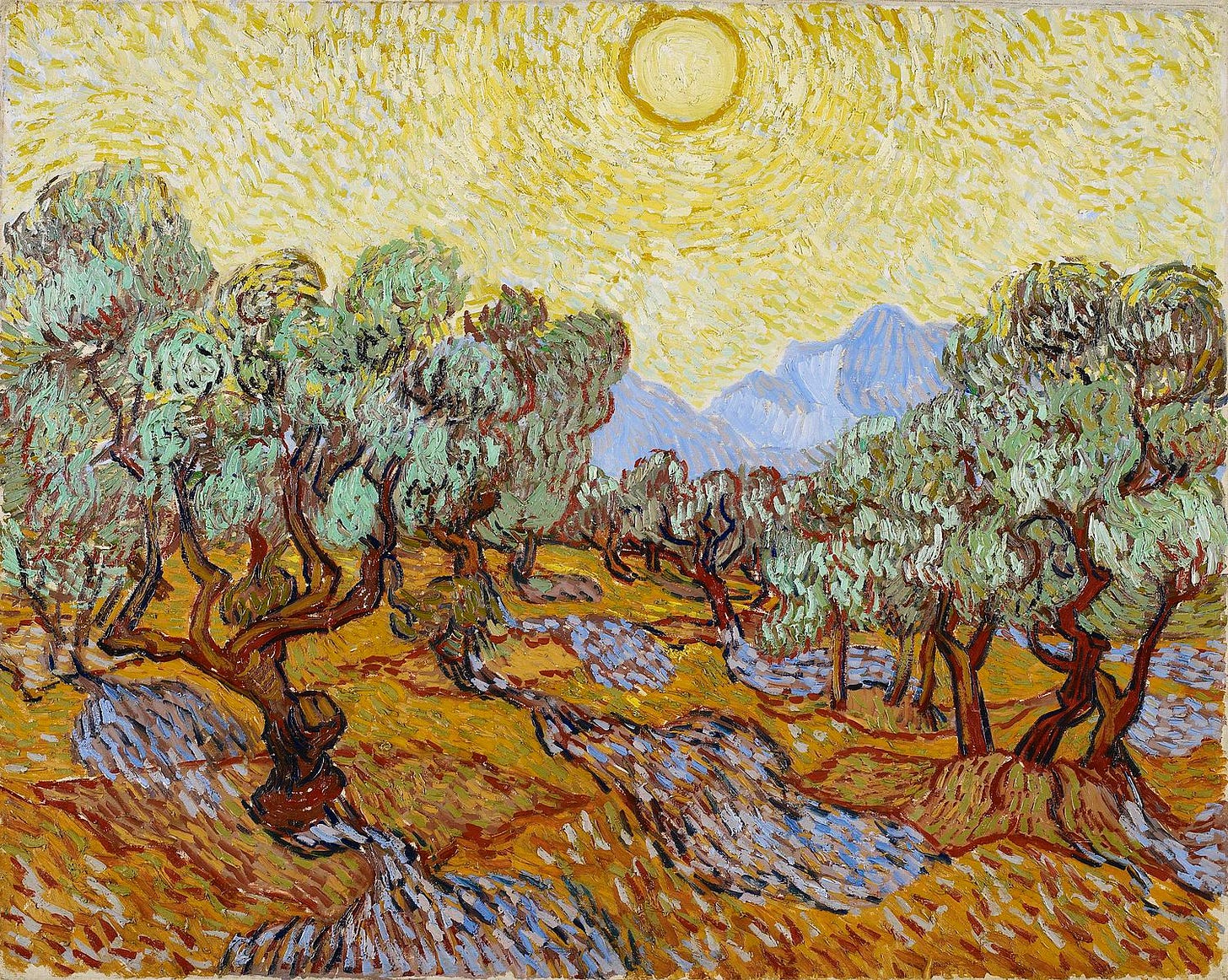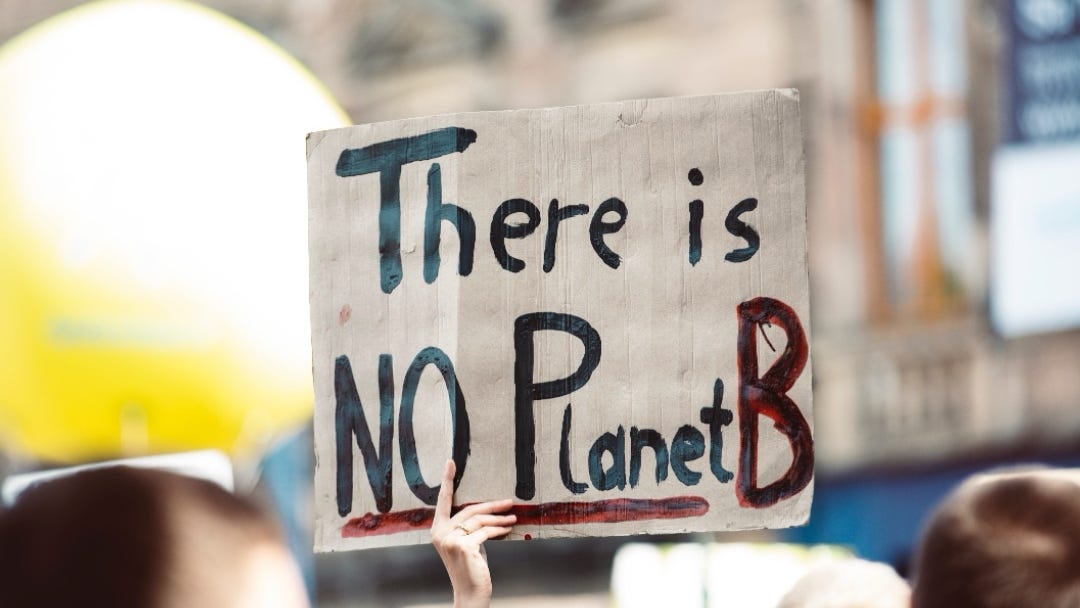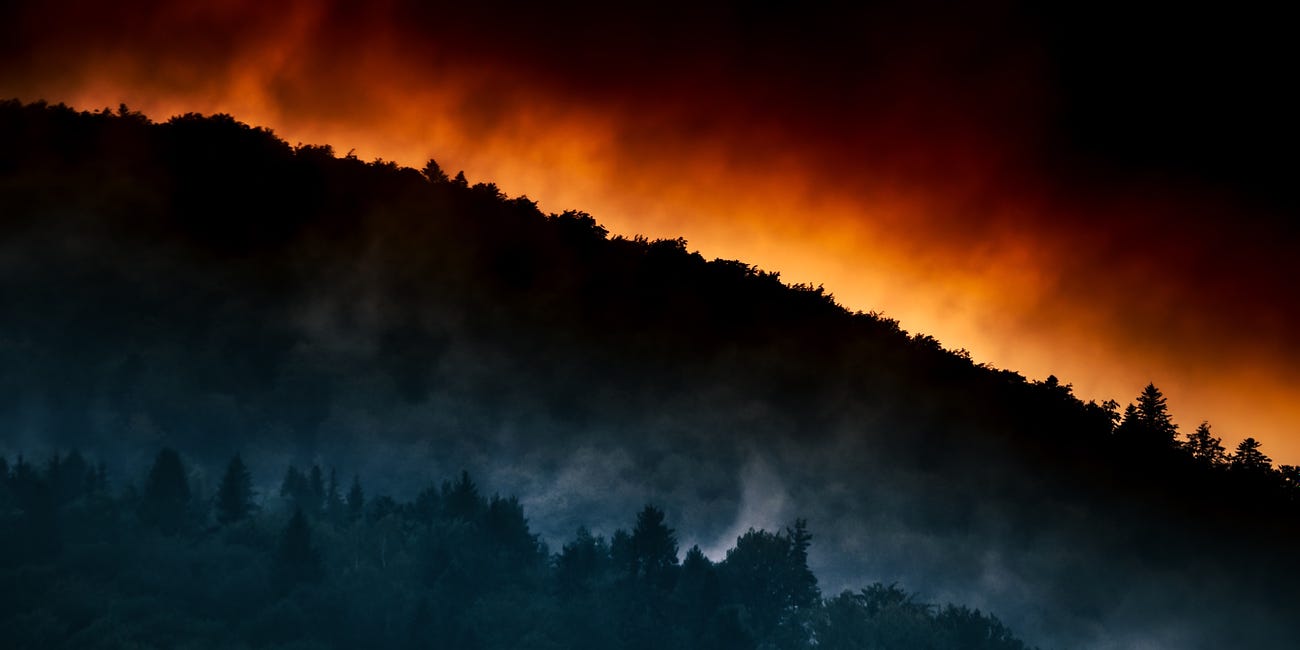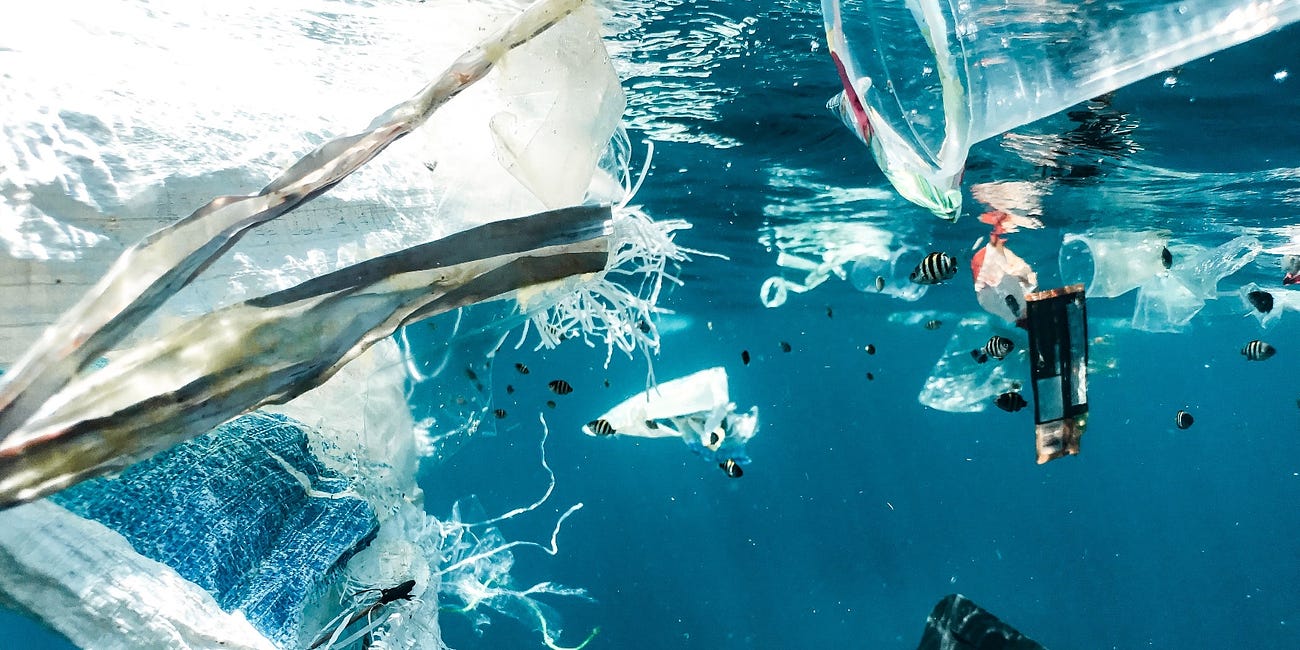Yesterday, I wrote about the frightening conclusions drawn by the authors of several recent reports about the lack of urgency in dealing with the climate crisis. Some of you wrote back with comments, and I always try to answer each of you.
But one answer I wrote just kept growing, and fearing I had reached the limits of Substack, I copied the text and finished it. One of the last lines in the comment triggered my response: "Some continued soul-searching is in order to see what more can be done - personally, at the local level, and through greater advocacy."
Here is my reply:
I mostly read about history, and the most captivating historical periods in the books on my shelves are often about challenging times of turmoil, such as war, revolution, or rapid societal transformations. The pages of each of those books are filled with tales of struggles between good and evil. You instantly recognize the bad guys in those accounts who are, unfortunately, quite powerful (historically, they are indeed nearly always guys). They are the ones who aim to get more power and wealth and are willing to do whatever it takes to get there.
If you fail to recognize bad leaders based on those characteristics, you may detect them by their narcissism, lack of empathy, and inability to admit mistakes. I won't mention examples here, but I'm sure you can think of some. If you are still in doubt, just watch their wives when they walk down the steep stairs once their airplane arrives. If you're the only one watching her, you have found one.
These leaders don't lead and certainly won't lead us to find the innovative solutions our planet urgently needs to address existential challenges like climate change. If a leader doesn't care for other people's needs or the next generations, they have different priorities irrelevant to the ones they pretend to lead.
Ghandi and MLK
But no history book is complete without the counterbalance of those who bravely stand on the right side of morality and motivate change against all odds. Inspiring individuals like Mahatma Gandhi and Martin Luther King demonstrated the transformative power of nonviolent resistance, proving that courage and conviction could overcome societal structural flaws.
Anne Frank, in the confines of her hiding place in Amsterdam, wrote words of beauty and resilience in the face of Nazi oppression. It's hard to accept that those who arrested her followed the law and that she was the one breaking it.

Anne's brilliance brings me to art, which can also be a platform for positive change through rebellion and individualism. Vincent van Gogh may not have been successful in society by any of the norms of his day. Still, he pursued his own path and left behind a legacy of timeless, beautiful paintings and writing that, more than a hundred years later, still challenges our perception of the world.
Bravely inspire change
These influential historical figures have a common thread: they show the courage to be different, have the nerve to challenge the status quo, and can inspire others to strive for a better world. I often find myself revisiting the stories about these icons in my writing, not just as historical anecdotes but as timeless lessons that resonate with the challenges of our era. The list is longer, but you get the idea: each has contributed to making the world better and more beautiful.
Today's world is marked by unique challenges, none more critical than the existential threats of climate change, biodiversity loss, and pollution. It brings me to another unlikely leader, Greta Thunberg, the teenager who skipped school to protest outside the Swedish parliament and became a global symbol of youth activism. Her simple defiance has sparked a worldwide movement, urging leaders to take immediate and drastic action against climate change.
In this example of leadership, Greta used her vulnerability as a young girl, sitting against the vast stone walls of parliament that symbolize the established powers. Nobody would have paid much attention if any of the parliamentarians had sat where she started. So, in her youth, Greta embodied the spirit of those who challenge the norm, echoing the resilience of Anne Frank and the determination of Gandhi.
Science, too, has its unconventional heroes. Albert Einstein, whose name is synonymous with genius, revolutionized our understanding of space and time in his early twenties; this was about a year after his request for a promotion in the patent office of clerk third class to clerk second class was denied because his supervisor argued that he lacked the qualification to work at the level of clerk second class. It's another example of how leadership is often provided by brilliant minds who emerge from unexpected quarters, surpassing the restrictions of traditional hierarchies.
The 15-year-old schoolgirl, the penniless painter, and the clerk third class, all remind us that we must look beyond the conventional expectations of leadership. And we need more unconventional, inspiring leaders to tackle the existential challenges of the 21st century.
Margaret Mead once said, "Never doubt that a small group of thoughtful, committed citizens can change the world; indeed, it's the only thing that ever has."
So when a subscriber to this newsletter comments, "Some continued soul-searching is in order to see what more can be done - personally, at the local level, and through greater advocacy," we need to realize that the power of individuals to drive change and challenge the status quo is a recurring theme in history.
We all have a responsibility to lead, but we can't - and shouldn't - all provide the same leadership. I often get asked by students what they can do to help. And my answer is that you should first focus on what you are good at, and from that position of strength, you do something good for our planet. So, if you are a good songwriter, use music to convince others of the need for climate action. If you are a financial expert, create products to support the financing mechanisms needed in a green economy. If you are a teacher - well, you get the idea.
What is your strength? Is it your vast network, creative insights, wealth, unique skillset, or something else? Once you have established that, try to use it best for a better future for all. Nobody expects you to be that next Greta, Vincent, Anne, or Albert; your strength could be helpful at the local level or valuable to only a few people; it all counts. That could be a good start for the soul-searching to see what more can be done.
If you got this far, please read this too:
I write this newsletter because I believe that together we can do better on this beautiful but fragile planet.
If you are a paying subscriber: thank you for your support!
If you are not, please consider supporting this initiative by taking a paid subscription.
Yesterday, and the day before yesterday, I wrote these articles:









Thank you, Alexander. Beautifully expressed and helpful in inspiring further actions.
If there was no other reason (yet there are many), this would be enough for me to read everything you write.
You are my hero.
Thank you.